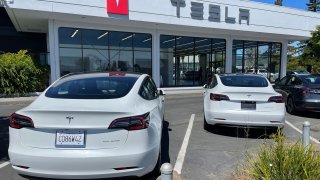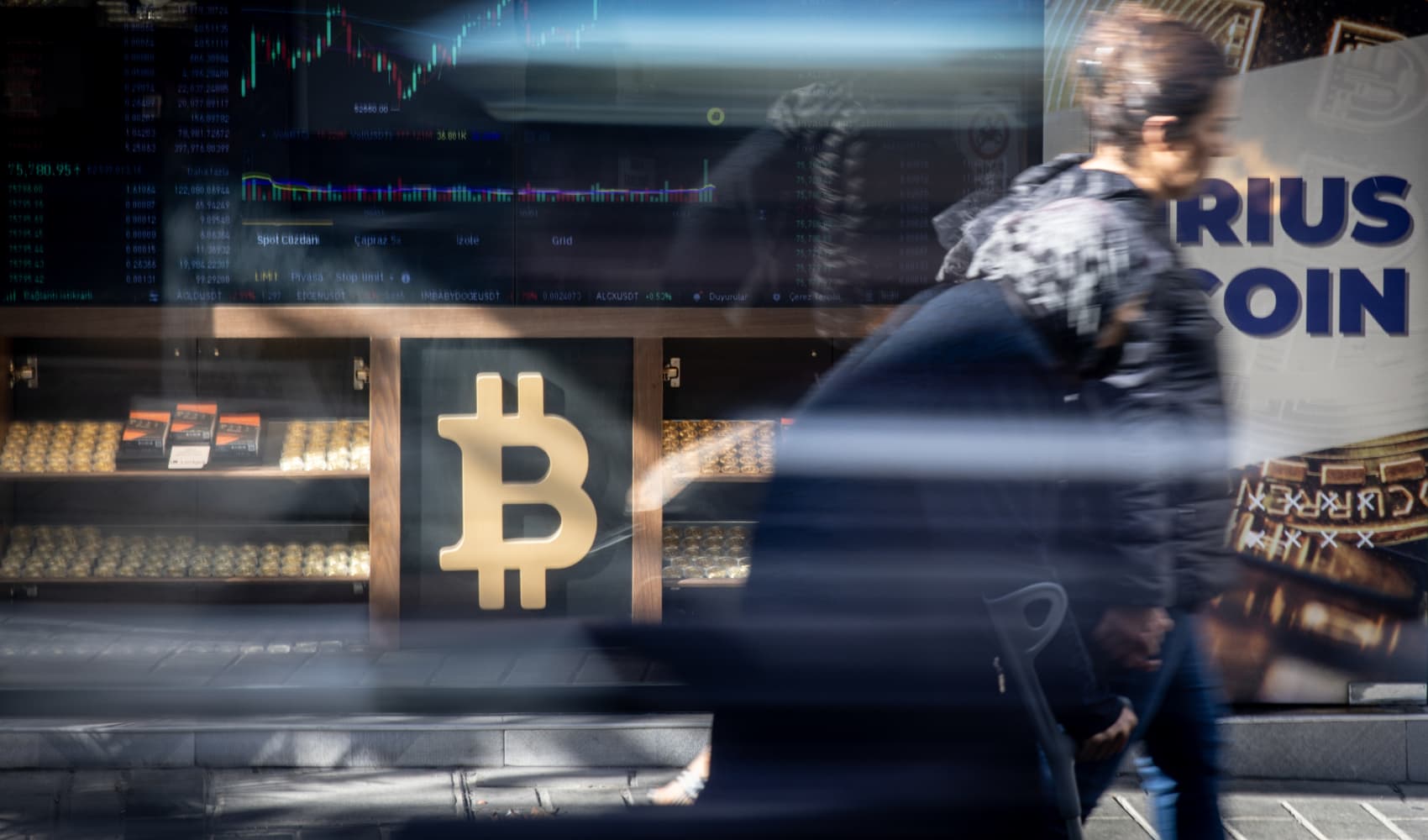
- In a pair of July 28 filings with California's Office of Administrative Hearings, an official and lawyers for the DMV wrote that Tesla's "Autopilot" and "Full Self-Driving" marketing suggest the cars are capable of operating autonomously, when in fact they can't.
- In a worst-case scenario, the company could temporarily lose the licenses which allow it to operate as a vehicle manufacturer and auto dealer in California.
- Tesla has fifteen days to respond to the accusations before the administrative court, otherwise the DMV will take a default decision.
The California Department of Motor Vehicles has accused Tesla of engaging in deceptive practices around the marketing of its driver assistance systems, which are branded Autopilot and Full Self Driving in the U.S., according to filing with a state administrative agency.
Watch NBC6 free wherever you are
Elon Musk's electric car business risks more than its reputation -- in a worst-case scenario, the company could temporarily lose the licenses which allow it to operate as a vehicle manufacturer and auto dealer in California.
In a pair of July 28 filings with California's Office of Administrative Hearings, an official and attorneys for the DMV wrote:
Get local news you need to know to start your day with NBC 6's News Headlines newsletter.
"Instead of simply identifying product or brand names, these 'Autopilot' and 'Full Self-Driving Capability' labels and descriptions represent that vehicles equipped with the ADAS features will operate as an autonomous vehicle, but vehicles equipped with those ADAS features could not at the time of those advertisements, and cannot now, operate as autonomous vehicles."
California DMV's Deputy Director for the Office of Public Affairs, Anita Gore, told CNBC via e-mail that if the department prevails, it "will ask that Tesla will be required to advertise to consumers and better educate Tesla drivers about the capabilities of its 'Autopilot' and 'Full Self-Driving' features, including cautionary warnings regarding the limitations of the features, and for other actions as appropriate given the violations."
Gore noted that this action pertains to Tesla's marketing and advertising practices around Autopilot and FSD only. The California DMV is conducting a separate safety review of "the intended design and technological capabilities of Tesla vehicles," to determine if they can be used on public roads without a special permit.
Money Report
The DMV, Gore said, wants to prevent driver misunderstanding and misuse of new vehicle technologies.
The Los Angeles Times previously reported on the DMV's filings to the administrative body.
Tesla has fifteen days to respond to the accusations before the administrative court, otherwise the DMV will take a default decision.
Tesla includes its Autopilot driver assistance features in all its newly manufactured cars, and sells a premium FSD (or Full Self Driving) option for $12,000 up-front or on a subscription basis for $199 per month. Sometimes, the company sells an Enhanced Autopilot option with a portion of the premium features included.
Elon Musk's electric vehicle maker also allows drivers to test unfinished driver assistance features on public roads in the U.S. through a program called FSD Beta (or Full Self Driving Beta).
Only Tesla owners who have the company's premium FSD system installed can participate in FSD Beta. Owners must obtain a high driver-safety score, as determined by Tesla software that monitors their driving, then maintain it to keep using FSD Beta. The company said it has rolled out FSD Beta access to more than 100,000 drivers already, most in the U.S.
Automakers, including Tesla, are now required to report significant collisions involving advanced driver-assist systems to the The National Highway Traffic Safety Administration.
Tesla vehicles comprised around 70%, or more than 270, of reported crashes involving these systems between June 2021 and July 2022, according to federal figures released in early July. The data isn't meant to indicate which carmaker's systems might be safest.
NHTSA has also initiated at least 37 special crash investigations into collisions that involved Tesla vehicles where the company's driver assistance systems were thought to be a factor. At least 17 fatalities resulted from those collisions that inspired NHTSA special crash investigations.
NHTSA has also opened an evaluation of Tesla's Autopilot technology to confirm whether it is defective and needs to be recalled, after a string of crashes in which Tesla vehicles struck emergency responder vehicles that were standing still.
Read the California DMV's formal accusations against Tesla here and here.






